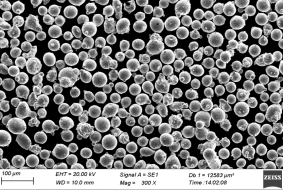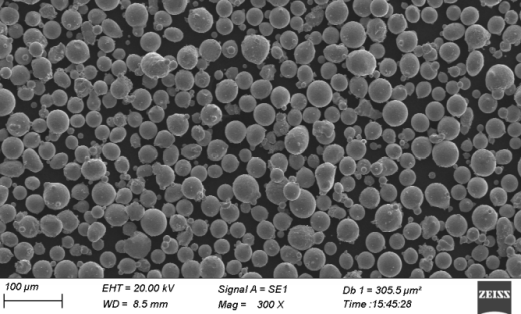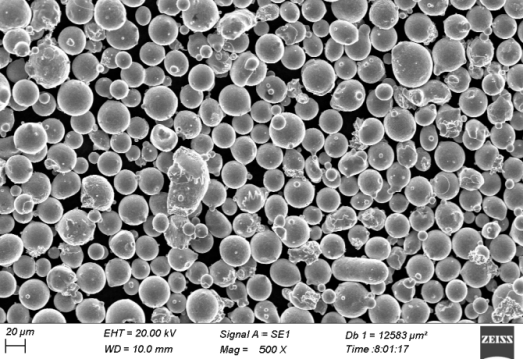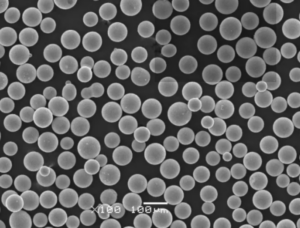1. Introducción: Por qué es importante el polvo de hierro esponjoso en la fabricación moderna
Sponge iron powder, also known as direct reduced iron (DRI) powder, is a highly porous form of iron produced through the reduction of iron ore without melting it. This powder is widely used across various industries, including powder metallurgy, automotive manufacturing, magnetic materials, and additive manufacturing. For B2B buyers, especially those in manufacturing and industrial sectors, sponge iron powder offers a versatile, cost-effective, and recyclable material source.
Principales ventajas para los compradores B2B:
- ✅ High compressibility for powder metallurgy (PM) applications
- ✅ Excellent sintering properties
- ✅ Cost-effective raw material for producing structural PM parts
- ✅ Superior machinability when alloyed
- ✅ Recyclable and environmentally friendly
As demand for lightweight and high-strength components grows, sponge iron powder is being increasingly adopted by industries looking to optimize performance and reduce costs.
2. Aplicaciones industriales del polvo de hierro esponjoso
Sponge iron powder serves as a core material in the fabrication of sintered components, used across a wide range of industrial applications. Here’s a breakdown of the primary sectors utilizing sponge iron powder in bulk:
| Industria | Solicitud | Principales ventajas |
|---|---|---|
| Automotor | Engine parts, gears, sprockets | Lightweight, durable, cost-efficient |
| Electricidad y electrónica | Magnetic cores, inductors | High permeability, soft magnetic properties |
| Construcción | Componentes estructurales, elementos de fijación | Alta resistencia, resistencia a la corrosión |
| Fabricación aditiva | Impresión 3d metal parts | High porosity and sinterability |
| Petróleo y gas | Valve parts, wear-resistant components | Estabilidad a altas temperaturas |
Common Components Manufactured:
- Bujes
- Rodamientos
- Engranajes
- Camshafts
- Contactos eléctricos
These applications highlight how sponge iron powder supports high-volume manufacturing with reliable mechanical performance.
3. Types of Sponge Iron Powder & Their Unique Properties
Sponge iron powder comes in various grades, depending on particle size, purity, and production method. The most common production methods include carbonyl, water atomization, and reduction.
Key Types of Sponge Iron Powder:
| Tipo | Tamaño de partícula | Método de producción | Aplicaciones |
|---|---|---|---|
| Pure Iron Powder | <150 μm | Hydrogen/Carbon Reduction | PM structural parts |
| Pre-alloyed Powder | Varía | Atomización del agua | Automotive, tooling |
| Aleación por difusión | 100–180 μm | Mixed & Sintered | Bearings, gears |
| Soft Magnetic Iron | Fino | Atomización de gases | Componentes magnéticos |
Shanghai Truer’s Sponge Iron Powder Portfolio
Shanghai Truer Technology Co., Ltd, a trusted supplier since 2009, offers a wide range of Polvos PM incluyendo:
- PM iron
- PM infiltrated iron
- PM phosphorus iron
- PM hybrid low-alloy steel (FD-0208, FL-4605)
Truer’s sponge iron powder offers excellent compressibility and sinterability, making it ideal for high-precision manufacturing. Truer also supports custom formulations tailored to specific B2B requirements. Their powders are manufactured using advanced water and gas atomization techniques, ensuring consistency and superior metallurgical properties.

4. Tendencias del mercado mundial y oportunidades de crecimiento
The global sponge iron powder market is experiencing steady growth, driven by rising demand for powder metallurgy components in automotive, industrial machinery, and 3D printing applications. According to industry reports, the powder metallurgy market—including sponge iron powder—is projected to reach over USD 10 billion by 2030, with a CAGR of 6-7%.
Key B2B Market Drivers:
- Aligeramiento en automoción: Car manufacturers are increasingly using PM parts to reduce vehicle weight and improve fuel efficiency.
- Electrification & E-Mobility: Electric motors require soft magnetic materials, where sponge iron powder plays a key role.
- Fabricación aditiva: The rise of metal 3D printing is increasing demand for customized iron-based powders.
- Fabricación sostenible: Recyclable and energy-efficient production methods are pushing industries toward sponge iron powder.
Perspectivas de los mercados regionales:
| Región | Key Trends | Buyer Focus |
|---|---|---|
| Asia-Pacífico | Largest producer & consumer | Cost-efficiency, scalability |
| Europa | Advanced PM applications | Quality, innovation |
| Norteamérica | Automotive & aerospace | High-performance materials |
With the shift toward sustainable manufacturing and the growth of precision industries, B2B buyers are prioritizing suppliers that offer both quality and versatility in sponge iron powder solutions.
5. Choosing the Right Sponge Iron Powder Supplier
For B2B buyers, selecting the ideal sponge iron powder supplier is a strategic decision that impacts production quality, cost, and supply chain stability.
Key Considerations When Evaluating a Supplier:
- Capacidad de producción: Check if the supplier uses reduction, water atomization, or gas atomization methods.
- Powder Grades Available: Ensure the supplier offers the required grades such as FD-0208, FN-0205, FL-4605.
- Opciones de personalización: Can the supplier tailor powder properties to your specific application?
- Certificaciones y normas: ISO9001, RoHS, REACH compliance, etc.
- Logística & Plazos de entrega: Evaluate delivery timelines and global distribution support.
- Asistencia técnica: Look for suppliers who offer metallurgical advice, testing, and co-development services.
Sample Supplier Evaluation Checklist:
| Criterios | Importancia | Shanghai Truer’s Advantage |
|---|---|---|
| Calidad del polvo | ⭐⭐⭐⭐⭐ | High purity, consistent sizing |
| Gama de productos | ⭐⭐⭐⭐ | Over 10 types of PM powders |
| Personalización | ⭐⭐⭐⭐⭐ | Tailored blends & grades |
| Entrega | ⭐⭐⭐⭐ | Global shipping, fast lead time |
| Industry Support | ⭐⭐⭐⭐⭐ | Expert technical support & R&D |
B2B buyers should prioritize suppliers like Shanghai Truer who not only deliver material but also offer complete powder metallurgy solutions. Learn more about Shanghai Truer’s background and technical capabilities.
6. Top Wholesale Sponge Iron Powder Suppliers in Asia
Asia is the world’s leading hub for sponge iron powder production due to its cost-efficiency, technological advancements, and large-scale manufacturing infrastructure. Here are some of the top suppliers in the region catering to B2B distributors and industrial buyers:
Top 5 Sponge Iron Powder Suppliers in Asia:
| Proveedor | País | Especialización | Servicios B2B |
|---|---|---|---|
| Shanghai Truer Technology Co., Ltd | China | PM powders, 3D printing powders, additives | OEM/ODM, bulk orders, technical support |
| Hoganas India Pvt Ltd | India | Iron-based powders for PM & welding | Wide distribution network |
| JFE Steel Corporation | Japón | Alloyed & non-alloyed iron powders | Materiales para automoción |
| Kymera Internacional | China & Korea | Specialty metal powders | Desarrollo de polvo a medida |
| Pometon S.p.A (Asia division) | Italia/Asia | Atomized iron, copper powders | High-volume industrial supply |
Por qué destaca Shanghai Truer:
- ✅ Offers both traditional and advanced powder types like diffusion alloyed and hybrid PM steels.
- ✅ One of China’s most professional PM additive suppliers.
- ✅ Supplies to industries like automotive, tool manufacturing, and additive manufacturing.
- ✅ Provides contactar con el servicio de asistencia for global distributors and OEMs.
Thanks to its integrated R&D, production, and logistics capabilities, Shanghai Truer is increasingly becoming the preferred partner for B2B buyers seeking quality and scale.

7. Why More Distributors Are Sourcing from Chinese Manufacturers
In recent years, global wholesalers, distributors, and OEMs have increasingly turned to Chinese suppliers for sourcing sponge iron powder. This shift is not only driven by pricing advantages but also by improvements in quality, innovation, and supply chain reliability.
Key Reasons Why B2B Buyers Prefer Chinese Sponge Iron Powder Suppliers:
- Eficiencia de costes: Chinese manufacturers offer highly competitive pricing due to economies of scale and local raw material access.
- Fabricación avanzada: Many Chinese suppliers now use state-of-the-art equipment like water atomization and hybrid atomization.
- Product Diversity: From basic sponge iron to prealloyed and diffusion-alloyed powders, China offers a wide product range.
- Capacidades de personalización: Suppliers like Shanghai Truer offer tailored solutions for specific industrial applications.
- Plazos de entrega más cortos: With better logistics infrastructure and production planning, Chinese manufacturers are shortening delivery cycles.
What to Look for When Sourcing from China:
| Criterios | Importancia | What to Expect from Shanghai Truer |
|---|---|---|
| Asistencia técnica | Muy alta | Dedicated R&D and PM experts |
| Experiencia en exportación | Alta | 14+ years in international trade |
| Consistencia material | Alta | Stable quality across batches |
| Personalización | Esencial | Tailored powder solutions |
| Certificaciones | Obligatorio | ISO, RoHS, and other industry standards |
When choosing a Chinese supplier, it’s critical to work with a company that not only delivers materials but also provides long-term strategic support. Shanghai Truer is a standout in this regard, offering a full suite of powder metallurgy products and services, including Soluciones en polvo PM and technical assistance.
8. Por qué elegir Shanghai Truer Technology Co., Ltd como su proveedor
Shanghai Truer Technology Co., Ltd is one of China’s most trusted names in the powder metallurgy industry. Established in 2009 and entering the additive manufacturing space in 2019, Truer has grown into a full-service provider of high-quality sponge iron powder and related PM materials.
Core Advantages of Partnering with Truer:
- Amplia gama de productos:
- PM Bronze, PM Iron, PM Steel, PM Stainless Steel, PM Infiltrated Iron, and more.
- Advanced sponge iron grades like FD-0208, FN-0205, FL-4605, and FX-2008.
- Modern Production Methods:
- Water atomization, gas atomization, carbonyl, and reduction processes.
- Combined atomization for specialty applications.
- Professional Additive Division:
- Cutting agents (SME-100, TD-8)
- Lubricants (Lube-W, SUW-5000B)
- Aditivos magnéticos blandos (QH-150, QHP-330)
- Graphite additives (TBC-400, TBC-1000)
- Customization & R&D Collaboration:
- Tailor-made powder compositions for specific industrial requirements.
- Technical guidance on sintering parameters and part design.
- Global Logistics & Support:
- Fast delivery to Asia, Europe, and North America.
- Responsive customer service in English and Chinese.
- Contactar con el equipo de Truer for technical consultation or a quote.
Why Truer Is a Strategic B2B Partner:
| Característica | Ventajas para los compradores |
|---|---|
| 14+ years of experience | Proven track record in PM supply |
| I+D interno | Better customization and innovation |
| Full range of PM materials | One-stop sourcing for manufacturers |
| Export-ready logistics | Fast, reliable international shipping |
| Industry certifications | Confidence in compliance and quality |
With a reputation for reliability, customization, and technical excellence, Shanghai Truer is not just a powder supplier—it’s a strategic B2B partner for manufacturers, wholesalers, and distributors worldwide.

9. FAQs: Everything B2B Buyers Need to Know About Sponge Iron Powder
Here are some of the most frequently asked questions from OEMs, wholesalers, and industrial buyers:
Q1: What’s the difference between sponge iron powder and atomized iron powder?
A: Sponge iron powder is made by reducing iron ore without melting, resulting in a porous structure. Atomized powder is produced by spraying molten metal into fine droplets, which solidify into powder. Sponge iron is often used in PM applications requiring high compressibility, while atomized powder is preferred for more precise applications.
Q2: What is the typical particle size range of sponge iron powder?
A: Particle sizes typically range from 45 μm to 180 μm, depending on the production method and grade. Truer offers customizable particle sizing based on application needs.
Q3: Can I order a custom blend of sponge iron powder for my application?
A: Yes, suppliers like Shanghai Truer specialize in custom formulations for automotive, additive manufacturing, and tooling industries. You can learn more about the company’s capabilities here.
Q4: What is the minimum order quantity (MOQ) for wholesale sponge iron powder?
A: MOQs vary by product and grade but typically start from 500 kg for standard grades. Custom orders may require a higher MOQ depending on specifications.
Q5: How do I ensure consistent quality across batches?
A: Partner with suppliers like Truer, who offer batch testing, COAs (certificates of analysis), and ISO-certified quality systems. This guarantees consistency and traceability.
Q6: How long does international delivery take?
A: Standard lead times range from 2 to 4 weeks depending on order volume and destination. Truer provides real-time shipping updates and flexible delivery options.
Q7: Is sponge iron powder suitable for additive manufacturing?
A: Yes. Sponge iron powder is increasingly used in binder jetting and other AM technologies due to its sinterability and porosity. Truer provides high-purity PM powders optimized for AM—check out their main product page para más detalles.
With this complete guide, B2B buyers can make informed decisions about sourcing sponge iron powder for their manufacturing needs. Whether you’re an OEM in automotive, a distributor in industrial components, or a 3D printing specialist, Shanghai Truer Technology Co., Ltd provides the quality, flexibility, and service you need to scale confidently.
For more information or to place a wholesale order, contacte con nosotros.

